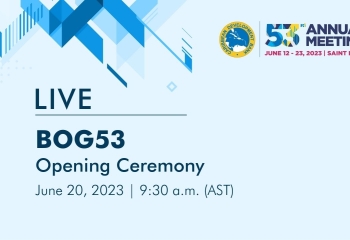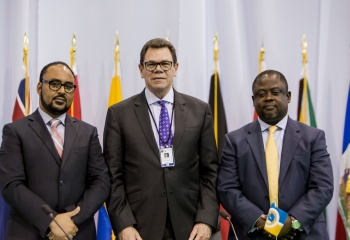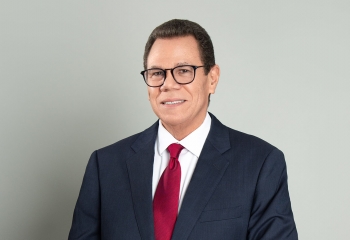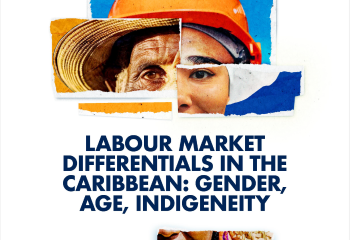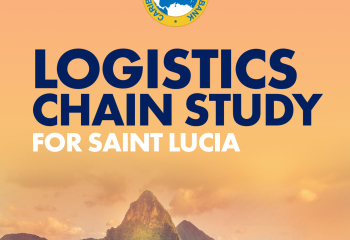Closing Ceremony of the Finance in Common Summit
It is a great honour to have participated in this historic Summit and I thank the African Development Bank and the European Investment Bank for the vision to convene this forum at this time.
Yesterday, one of our speakers said we cannot keep lurching from crisis to crisis. I wholeheartedly agree because this is the case in the developing world, especially Small Island Developing States where we face challenges from COVID, the impact of climate change, risks from more intense and frequent natural hazards, and legacy structural reform deficits that impede achievement of sustainable development. I suggest we need a new deal to achieve resilient economies that can provide sustainable livelihoods for all.
If we are to be champions of sustainable, inclusive, development for all, we need to act as a unified global development partnership. This is the future for Finance in Common Movement — a partnership for convening voice and advocacy that aims to strengthen each of us so we can be a stronger unified body. Let me suggest a few ideas to drive this vision:
Paradigm: To forge resilient economies and achieve desirable development outcomes, we need to marry long term development objectives with stabilisation/recovery requirements by integrating frameworks of debt sustainability, quality investment—growth nexus, and resilience building to ensure internal system coherence at all times but temporal consistency over time.
Capital: We know that USD3-5 trillion in investment is required annually for developing countries to achieve the Sustainable Development Goals. For the Caribbean Development Bank, upwards of USD100 billion is needed to build resilience, implement transformation, and achieve sustainable development in our Borrowing Member Countries—some of the most vulnerable in the world to sea level rises, natural hazards, and biodiversity loss. We can make more effective use of our capital by:
- Advocating for part of the excess Special Drawing Right holdings of developed countries to be reallocated to support recovery and sustainability in developing economies. This funding should be channeled through Multilateral Development Banks (MDBs), which are ideal entities to drive social and economic development.
- Better recognition of callable capital, to increase leverage of our balance sheets.
- Liquidity insurance mechanisms that can act as a “lender of last resort”, to allow access to financing in times of urgent need without violating liquidity thresholds.
Partnerships: Creating a committee for advocating unified positions, sharing principles and practices, and developing self-regulatory norms to reduce moral hazard arising from first mover action or from “too little voice to lead”
- Forging stronger synergies in development between MDBs and National Development Banks.
- Promoting partnerships for development with the private sector through transparency and reduction of policy uncertainty to encourage mission-oriented activities that span project cycle origination, design, execution, and evaluation.
- Encouraging sharing of data and knowledge within this community to strengthen decision making and governance.
- Actioning the notion that even proper selection of quality investments cannot achieve development goals without adequate and affordable finance and requisite implementation capacity.
At this hour, our greatest need is for a multilateralism that assures the equitable distribution of economic and social benefits to meet diverse needs and a just transition toward development.
I thank you.
